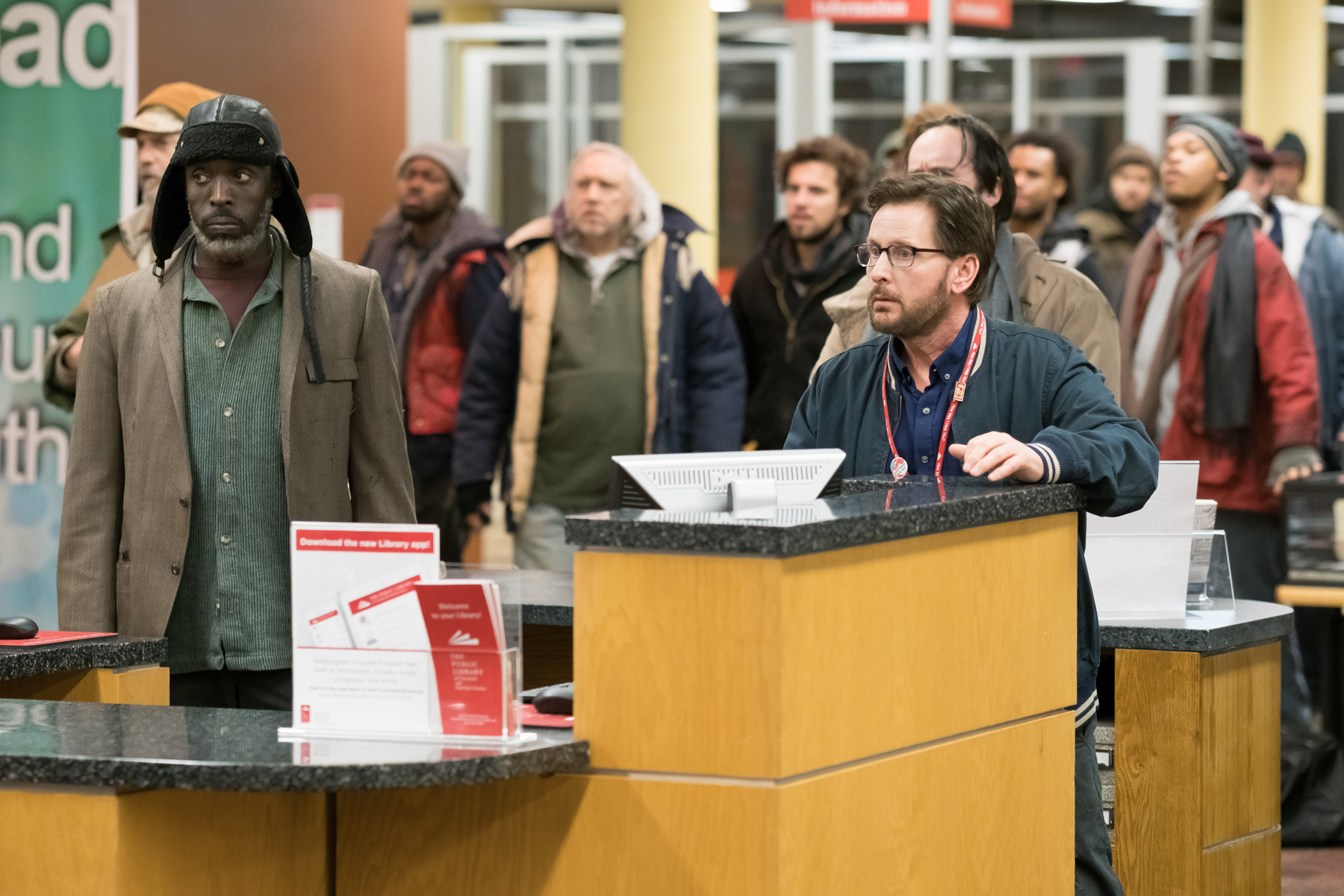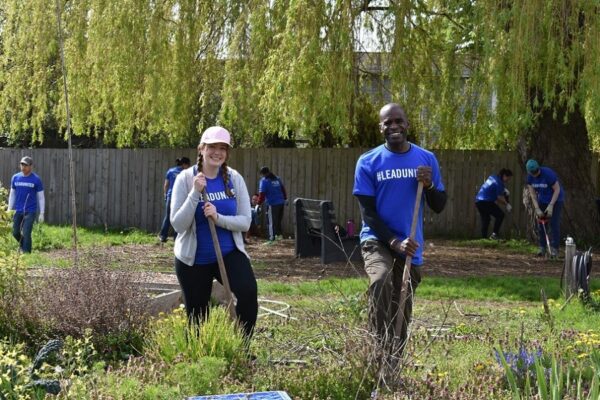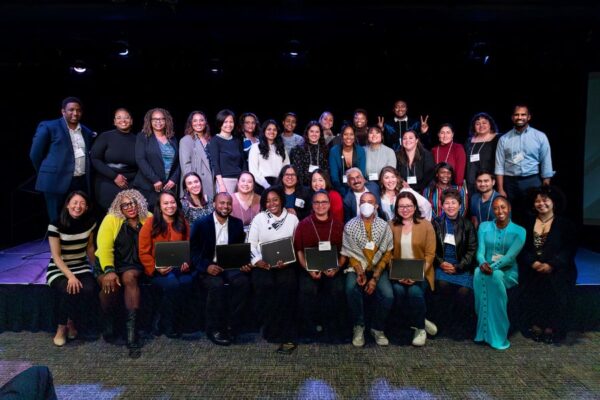What’s Society’s Obligation to Provide Shelter? The Public Takes a Look
This is a guest post from MaryKate Moran, our Social Media Strategist. Here, she reflects on the film The Public, just out on streaming, and how it presents a picture that’s familiar across the county.
Libraries are de facto daytime shelters for people experiencing homelessness. So much so, that on one cold night, homeless patrons refused to leave the library for fear of freezing to death. Their request: Let them stay in the library overnight or provide adequate shelter (And access to it. The emergency overflow shelter is a 40-minute walk away). Naturally, this doesn’t go over well with the city.
Sound like something you’d hear on the evening news? I wouldn’t be surprised, considering the homeless crises in several American cities. But it’s actually the plot of The Public, now on DVD/Blu-Ray and on streaming.
It follows two librarians, Myra and Stuart, (Jena Malone and director Emilio Estevez) as they’re caught in the middle of the occupation, trying to figure out the “right” thing to do.
It’s also one of the only films I’ve ever seen that depicts people experiencing homelessness with dignity, including Michael K. Williams, rapper Rhymefest, and scores of other actors playing the city’s homeless citizens.
Too often, homeless people are depicted as crazy, dirty, undeserving of our time. Or as sage shamans, framing homelessness as a beatnik lifestyle and not a plight. The Public treats homeless people like people. People struggling because they’ve lost their job and can’t find a new one. People self-medicating with alcohol. People with various unaddressed mental health needs. However, they’re not scapegoats and they’re not caricatures.
Despite it being fiction (inspired by this 2007 L.A. Times article) and set taking place more than 2,000 miles away in Cincinnati, I saw a lot that felt familiar to the crisis here in Seattle.
Homeless patrons using the library to use the Wi-Fi and write emails to loved ones. To rest in a comfortable place that’s not outdoors.
The conversations I’ve had with guests at the Community Resource Exchange sounded like a scene where patrons sat around a table, discussing their various arrests (including several for jaywalking). Big George (Rhymefest) is fearful at the idea of being arrested, and his companions laugh, saying it’ll happen to him, he just hasn’t been out on the street long enough.
What else felt familiar? The second half of the patrons’ request: providing an adequate alternative shelter. This was filmed in 2017, but I heard echoes of the recent Ninth Circuit Court of Appeals decision, which ruled that people can’t be punished for sleeping on the streets in the absence of shelter alternatives.
I immediately thought of our commitment to permanent supportive housing. Big George represents an aspect of the homeless population often maligned and scapegoated: those struggling with mental health. He exhibits signs that look like schizophrenia (keep in mind I am not a medical professional) that keep him from interacting with others too much. Yet he’s also new to living on the street. He’s lived a, by society’s standards, “normal” life prior. It made me wonder: with the proper care, medication and housing support, could Big George could lead a healthy, stable life?
The Public deftly juggles its earnest aims in some spots, but is too heavy-handed in others. There are subplots with Christian Slater and Alec Baldwin that are supposed to address the big machine of politics and policing of homelessness. Instead, it overstuffs the latter half of the story. And some critics have said the film has a good heart but gets too preachy. And the scene where Stuart quotes The Grapes of Wrath to reporter Gabrielle Union is a low point. Still, I think we could all use a little more preaching when it comes to our responsibility to help people experiencing homelessness.
Telling the stories of homeless individuals is rare for Hollywood. I urge you to check it out on streaming. Check your own assumptions. Use the movie as a conversation starter.





Comments